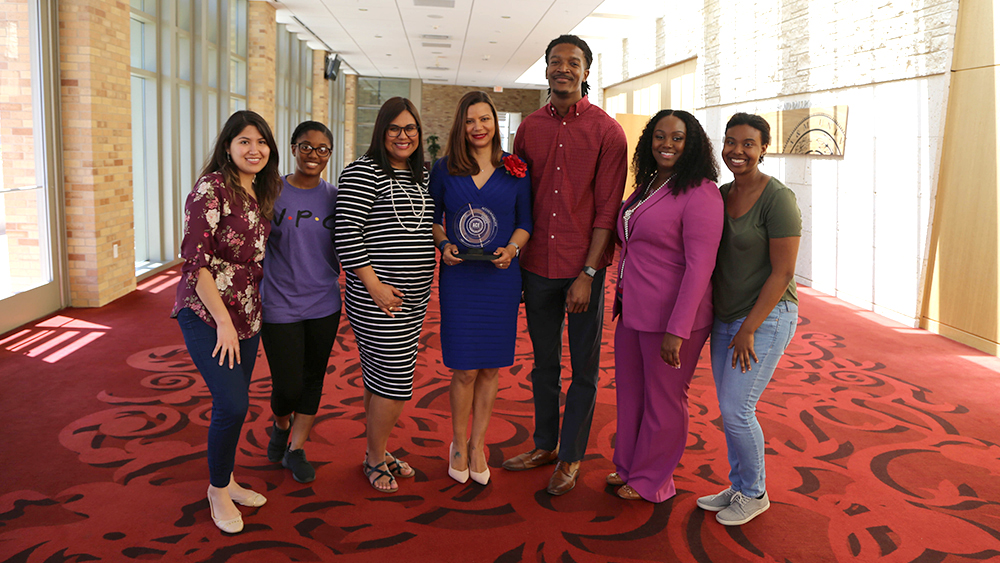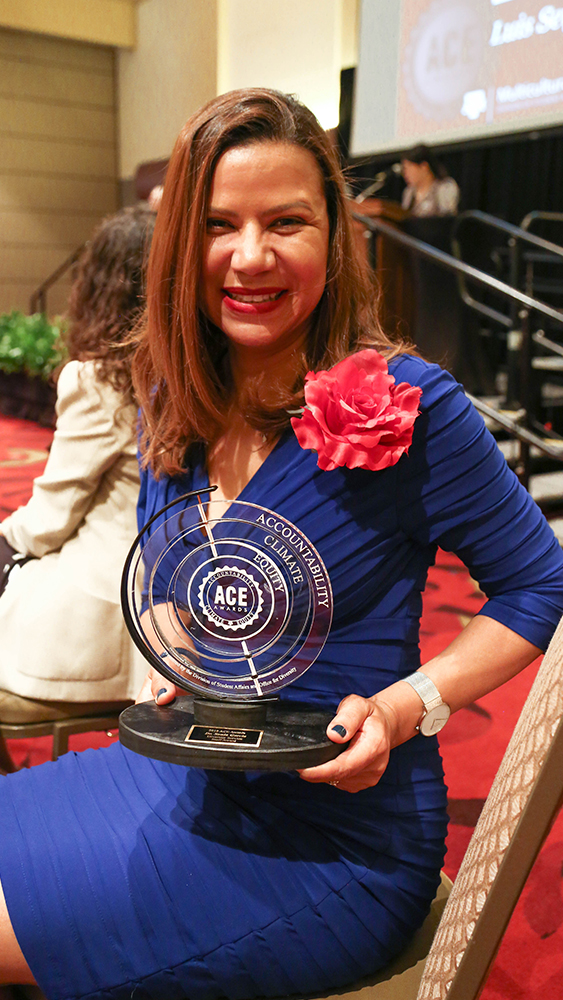
If there’s one thing Dr. Sonia Garcia wants you to know, it’s this — underrepresented minority students thrive when given the opportunity and resources to succeed.
As senior director of the Access and Inclusion Program in the College of Engineering at Texas A&M University, Garcia works tirelessly to make sure that underrepresented minority engineering students have a community and a place to grow academically and individually. Her efforts were recently recognized by the Department of Multicultural Services at the annual Accountability, Climate and Equity Awards ceremony where she was given the Diversity Service Staff Award.
Garcia’s story is similar to that of many of the students she helps daily. Born in the Dominican Republic and later moving to Puerto Rico and finally the mainland United States, she understands what it feels like to be different than others around you. She also understands how integral the people who came before her were to her own success.
“In so many ways, my career in higher education is my way of paying it forward,” she said.
Finding her purpose
A first-generation college student, Garcia admits that she was apprehensive when she first arrived at the University of Massachusetts in 1990. But she leaned in and listened to the advice of those around her, and she carved out her own path.
There were advisors, faculty members and deans who encouraged her and helped her see her own potential. One such opportunity was a summer program designed to help underrepresented minorities gain admission to graduate school. She had just completed Bachelor of Science degrees in political science, international relations and French, when she earned a fellowship at the University of Rhode Island in the student affairs master’s program.
It wasn’t something she initially planned to pursue, but a mentor encouraged her and helped her realize that this was something she could really excel at.
After graduating, she worked at Michigan State University as an advisor. It was a difficult job, but it ignited her passion for helping students even more.
“After a couple years working with minority students in high-risk situations, I realized how difficult it was for them,” she said. “I really wanted to know more about this, so I decided to go for a Ph.D.”
Garcia’s dissertation was on the ethnic identity development of Latina women in college, something with which she was acutely familiar.
“I saw a lot of minority students struggle,” she said. “That struggle plays a role in how well students do academically.”
And that struggle became the driving force behind her passion to create a space for minority students to feel empowered.
Students give me life and energy. They give me motivation to go on and continue helping them, to show them all the potential that they have.
Establishing Access and Inclusion
In 2014, Garcia was hired to lead a brand-new initiative at the College of Engineering at Texas A&M — the Access and Inclusion Program. The program provides opportunities for high school students to visit the college and learn about engineering. It also helps facilitate a transitional program for first-generation college students called the Engineering Summer Bridge Program. Another component is a high-impact professional development course to help undergraduate students sharpen their soft skills that will help them become successful outside the classroom. Garcia, who once served as a peer mentor herself, developed a peer mentor program so that undergraduates have access to knowledgeable upperclassmen. She also worked with Halliburton Engineering Global Programs to create an opportunity for first-generation students to do research and study abroad in Mexico.
When asked why she works so hard for students, her answer is simple. Because she cares.
“Students give me life and energy,” she said. “They give me motivation to go on and continue helping them, to show them all the potential that they have.”
Garcia’s office is located in the Equity and Inclusion Suite inside the Zachry Engineering Education Complex. The Women in Engineering Program is also housed in the suite, and the two programs often collaborate on events and initiatives.
“It’s not just saying ‘We care about you.’ We actually do care,” she said.
Her hard work has paid off. The College of Engineering has seen an increase in the enrollment and retention of Hispanic and African-American students in the last couple of years.
“Creating opportunities for these populations means creating opportunity for the future,” she said. “Once we open the access and include minorities in innovation and education, that’s when we’re going to make a difference in society.”
Garcia said it isn’t just about paying it forward.
“It’s about being in a position where you’re meeting with a student who feels they have no opportunities and then you show them that they do,” she said. “It’s just an amazing feeling. This is about making a permanent contribution to these students.”